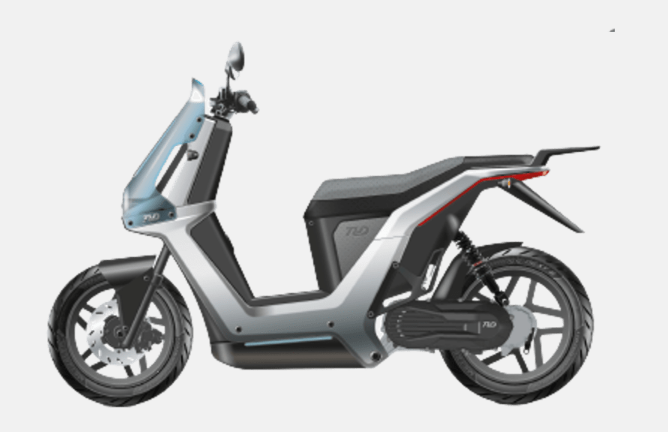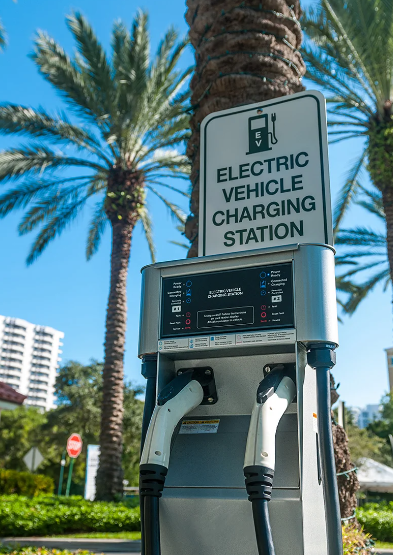As urban landscapes continue to evolve and sustainability becomes a global priority, the debate between commuter electric scooters and traditional transportation methods intensifies. At Farpro EV, we are at the forefront of this conversation, advocating for efficient, eco-friendly commuting solutions. In this detailed analysis, I will compare commuter electric scooters with traditional transportation options, examining their benefits, drawbacks, and overall impact on your daily commute. This comprehensive guide is designed to help you make an informed decision about which mode of transportation is best suited for your needs.

Environmental Impact
Commuter Electric Scooters: Electric scooters are renowned for their low environmental impact. They produce zero emissions, making them an excellent choice for eco-conscious commuters. By choosing an electric scooter, you contribute to reducing air pollution and lowering your carbon footprint.
Traditional Transportation: Traditional transportation methods, such as cars, buses, and motorcycles, typically rely on fossil fuels. These vehicles emit significant amounts of greenhouse gases, contributing to air pollution and climate change. While public transportation is more efficient than private cars, it still has a higher environmental impact compared to electric scooters.
Verdict: If environmental sustainability is a priority for you, commuter electric scooters are the clear winner. Their minimal environmental impact makes them a responsible choice for eco-friendly commuting.
Cost-Effectiveness
Commuter Electric Scooters: Electric scooters offer a cost-effective solution for daily commuting. The initial investment in a high-quality scooter can range from $300 to $1,500, depending on the model and features. However, the ongoing costs are relatively low. Charging an electric scooter costs only a few cents per charge, and maintenance expenses are minimal.
Traditional Transportation: The cost of traditional transportation varies significantly. Owning a car involves substantial expenses, including fuel, insurance, maintenance, and parking fees. Public transportation fares are generally lower than car ownership costs but can still add up over time, especially if you rely on multiple transit systems.

Verdict: Electric scooters are generally more cost-effective in the long run, especially when considering the low operating and maintenance costs. For budget-conscious commuters, electric scooters offer a more affordable alternative to traditional transportation.
Convenience and Accessibility
Commuter Electric Scooters: Electric scooters are incredibly convenient for short to medium-distance commutes. They are lightweight, portable, and easy to maneuver through traffic. Most models can be folded, allowing you to carry them onto public transportation or store them under your desk at work. Additionally, electric scooters can be charged at home, eliminating the need for trips to the gas station.
Traditional Transportation: Cars provide convenience and comfort, particularly for long-distance travel or when carrying heavy loads. Public transportation, while more accessible in urban areas, can be subject to delays, overcrowding, and limited schedules. Walking and cycling are viable options for short distances but may not be practical for longer commutes or inclement weather.
Verdict: For urban commuting, electric scooters offer unparalleled convenience and accessibility. They are perfect for navigating busy city streets and can easily be integrated with other forms of transportation for longer journeys.
Speed and Efficiency
Commuter Electric Scooters: Electric scooters typically have a top speed ranging from 15 to 25 mph, depending on the model. While this is slower than cars and motorcycles, scooters excel in urban environments where traffic congestion can significantly impact travel time. Electric scooters can take advantage of bike lanes and pedestrian paths, often providing a quicker route through crowded areas.
Traditional Transportation: Cars and motorcycles offer higher speeds and are ideal for long-distance travel. Public transportation can be efficient, particularly in cities with well-developed transit systems. However, traditional transportation methods are often affected by traffic congestion, road closures, and other delays.
Verdict: In congested urban areas, electric scooters can be more efficient than traditional transportation. Their ability to bypass traffic and use alternative routes makes them a speedy option for city commuting.
Safety Considerations
Commuter Electric Scooters: Safety is a crucial consideration when using electric scooters. Riders are exposed and vulnerable to traffic accidents. However, advancements in scooter design, including improved braking systems, lights, and reflective materials, have enhanced safety. Wearing a helmet and following traffic regulations are essential for safe riding.
Traditional Transportation: Cars and buses offer more protection in the event of an accident, making them generally safer than electric scooters. Public transportation also provides a safe commuting option, with lower accident rates compared to private vehicles. However, motorcycles and bicycles pose similar safety risks to electric scooters.
Verdict: While traditional transportation methods provide more protection, electric scooters can be safe when used responsibly. It’s important to invest in safety gear and adhere to traffic laws to minimize risks.
In the debate between commuter electric scooters and traditional transportation, the best choice depends on your specific needs and circumstances. At Farpro EV, we believe that electric scooters offer a compelling alternative for many urban commuters, combining environmental benefits, cost savings, and convenience.
When to Choose Commuter Electric Scooters
Environmental Consciousness: If reducing your carbon footprint is a priority, electric scooters are the way to go.
Cost-Effectiveness: For budget-conscious commuters, the low operating costs of electric scooters are a significant advantage.
Urban Convenience: In congested cities, the ability to navigate traffic and avoid parking hassles makes scooters highly efficient.
Flexibility and Portability: The lightweight and foldable design of scooters provides unmatched portability.
When to Choose Traditional Transportation
Long-Distance Travel: For longer commutes, cars and public transportation may be more practical.
Safety Concerns: Traditional vehicles offer more protection in accidents.
Regulatory Stability: Established regulations provide a clear framework for traditional transportation.
Ultimately, the choice between commuter electric scooters and traditional transportation comes down to your lifestyle, commuting needs, and personal preferences. As a technical advisor at Farpro EV, I recommend evaluating your daily routine, distance, and priorities to determine the best mode of transportation for you. Embracing the benefits of electric scooters could transform your commuting experience, offering a sustainable, efficient, and enjoyable way to travel in the modern urban landscape.
By making an informed decision, you can optimize your commute, contribute to environmental sustainability, and enhance your overall quality of life. At Farpro Electric Scooter Manufacturer, we are committed to providing high-quality electric scooters that meet the diverse needs of today’s commuters, ensuring that you have the best possible commuting experience in 2024 and beyond.
